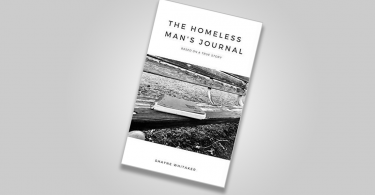Don’t worry, that’s not a painfully stupid spelling mistake. It’s actually referring to the dramatized reading of Ray Bradbury’s Fahrenheit 451 that took place as part of the London Literature Festival 2014.
The event, running from 30th September to 13th October, was held at the Southbank Centre; a perfectly vibrant setting, with plenty of great places along the riverbank to eat, all of which were buzzing despite it being 4pm on a Sunday afternoon. There was even the added bonus of a book sale under one of the bridges, which was a book-lover’s haven with its first editions and vintage hardbacks.
Reliving the masterpiece
Once I’d spent a bit of time (and money) at the book sale, I headed off in search of the Purcell Room, which is the Southbank Centre’s most intimate room, perfect for literature and spoken word events. Although the audience was only about half full, this didn’t put me off, as I could tell from the conversations I overheard that everyone there was really looking forward to re-living this literary masterpiece.
Not having read the book since I studied dystopian fiction a few years ago, I was excited too, but I admit I was a little sceptical as to whether my attention was going to be held for several hours of being read to. Like most of you, I should imagine, I haven’t been read to since I was little, and that was only for about ten minutes before bed.
I needn’t have worried. As soon as the five actors stepped out onto the dark stage and took their seats on high bar-stools, accompanied by the haunting notes of a live saxophone, I was hooked. For those of you who don’t know, Fahrenheit 451 (the temperature at which paper burns), tells the story of a fireman named Guy Montag, who lives in a dystopian world where it is a pleasure to burn.

The main difference is that the firemen aren’t there to put out fires, but to start them. Their job is to burn books and the houses that contain them, as books are banned. They’ve been replaced by television, which is largely censored and manipulated by the government. Throughout the novel, Guy struggles to accept what’s going on around him, in a way with which is very easy to identify, as the majority of readers would probably react in the same way.
Simple but effective
Although very simple, the performance was very effective, with the actors standing up to read their lines from an inconspicuous black folder and putting on different personas for each character they played. There wasn’t any acting as such; it was literally just a reading, but I found that this cleverly highlighted the message of the book. In the novel, the only way that people can continue to enjoy literature is by memorising it and then passing it on, with the long-term hope of eventually writing it down again. So, hearing Bradbury’s work spoken aloud was amazingly powerful.
As well as the reading and the interjections from the saxophonist (which seemed entirely appropriate and in-keeping with the performance), the spoken words were often enhanced by perfectly timed sound-effects, such as the alarming crackling of a fire and the wail of police sirens. These touches really brought the dystopian world to life, as it felt as though the room was being engulfed by the flames, or that we were right there on the dark street with Guy.
When the story came to an end, I was jolted back into reality, feeling surprised at how involved I had become in a book that I’d already read. I hadn’t really expected it, but hearing it out loud felt very different to reading it myself. Somehow, I found myself paying close attention to the descriptions and conversations and almost absorbing them, in a way that was much more concentrated than when reading. Because I was forced to listen to each word, instead of just skimming quickly down the page to find out what happens next, I took a lot more away from it and left feeling that Fahrenheit 451 really is a masterpiece.
If you ever get the chance to go to a reading, whether it’s of a book you’ve read ten times over, or something you’ve never even heard of, I’d really recommend it. It may not immediately sound appealing, but I found that it’s a great way to explore and discover new meanings and ideas in classic literature.
Image: Flickr/Geoffrey Fairchild








